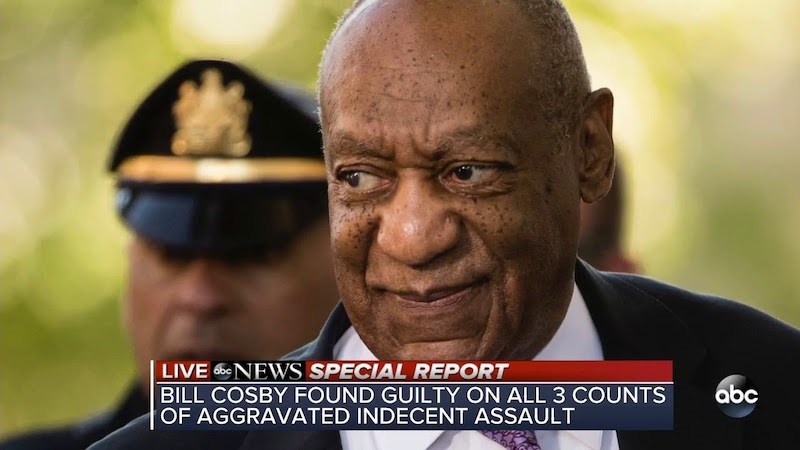There are a lot of aspects about contemporary progressive concepts of justice that one could criticize, but I think the lack of the possibility of forgiveness is it’s chief failure. Notice I didn’t say “redemption”, which is, in theory, possible (though astonishingly difficult), but forgiveness.
Say some celebrity does something really bad. He gets called out. He apologizes. He gets criticized for not apologizing enough. So he apologizes more. He makes a written statement. He donates a million dollars to some foundation-against-badness. He makes the talk show rounds and declares how wrong he was. He gets replaced in all his upcoming film acting roles. His character on that hit TV show gets retconned. His book gets cancelled by the publisher. He’s kicked off his sports team. His career collapses. Heck, maybe he even spends a couple years in federal prison (e.g. Michael Vic). He’s very sorry and very publicly sorry. But is it enough? No, it’s never enough. There is no forgiveness for his doing of bad things. Even if he seems redeemed or atoned for, his accusers will continue to accuse him for the bad thing he did. It cannot be undone as there is no time travel, and so there is no end to justice’s blade. Ever.
I was reminded of this attitude while reading a review of the new Bill Cosby documentary. The film is made by comedian W. Kamau Bell, who idolized and was deeply inspired by Cosby in his youth and who was then devastated when it came out that for all those years Cosby was at the top of family-friendly comedy, he was also serially drugging and date-raping women. Bell is as upset about this as anybody on earth.
Though I’m not black or a comedian, I share some of that same devastation personally as well. I grew up listening to Cosby’s comedy acts on cassette tape on repeat. I can recite the entire “The Chicken Heart that Ate up New York City” bit by heart, or the one about his friends racing go-carts. The Cosby Show was one of the few (and I mean very few!) shows I was allowed to watch growing up. I still remember the episode where he has a trippy bad dream after eating too much spicy food and his daughter is playing a purple saxophone. I have no idea why I remember that stuff, but it’s great. I was also upset to find out about all the horribly things did. For years I thought for sure he was one of the “good guys”. It totally sucks.
Bell, in his documentary tries to grapple with that and in the end comes to a conclusion that he must separate Cosby the man from the art he created, somehow. This is a conclusion come to by a lot of historians who study great but also terrible people. Sculptor Eric Gill comes to mind. But the reviewer at Vulture is pissed off about it.
Most frustratingly of all, in the end, after persuasively illustrating over four hours that this artist and this man are intertwined, Bell decides the best option is to keep them separated. Returning again to the question he raised about how to think about Bill Cosby now, he confesses, “I wanted to hold on to my memories of Bill Cosby before I knew about Bill Cosby. I guess I can, as long as I admit, and we all admit, that there’s just a Bill Cosby we didn’t know.” He suggests that if we can absorb the lessons taught by the good Bill Cosby, then we can create a world where bad Bill Cosbys are less likely to exist. Which: sure, maybe. But that’s a pretty pat note to end on given the complicated, knotty analysis that has preceded it.
The much harder but more honest thing to do is acknowledge that there is no division — or, as Jelani Cobb, writer and Columbia University professor, puts it, “Some people tended to see it as Dr. Jekyll and Mr. Hyde. I think that you could make an argument that it’s all Mr. Hyde.” If you ever admired Bill Cosby, it may hurt to hear that. But just about everything in We Need to Talk About Cosby, excluding Bell’s own conclusion, suggests that Cobb is absolutely right.
-Jen Chaney, We Need to Talk About Cosby Wrestles With a Fractured Legacy, (emphasis mine)
See what the reviewer did there? I’m not sure who this professor she quotes is, but it’s a perfect statement of contemporary social justice: There is no Dr. Jekyll. There is only Mr. Hyde. And Mr. Hyde can NEVER be forgiven. How dare you even suggest a framework where it might be possible to forgive Bill Cosby? That’s not “honest”. How dare you!?
This right here is a key contrast to the gospel. The gospel says: yes, you really did do all these terrible things. In fact, they are even more awful and sinful and evil and destructive than you can even imagine. BUT, Jesus forgives you. Yes, if you clean up your act and become a better person, that’s great, but it’s not required. In fact, there may be little you can do to can’t fix the past anyway, but you don’t need to. You can be reconciled to God and also reconciled to others through the power of his forgiveness.
Justice has a sword, but it has a flat edge as well.

